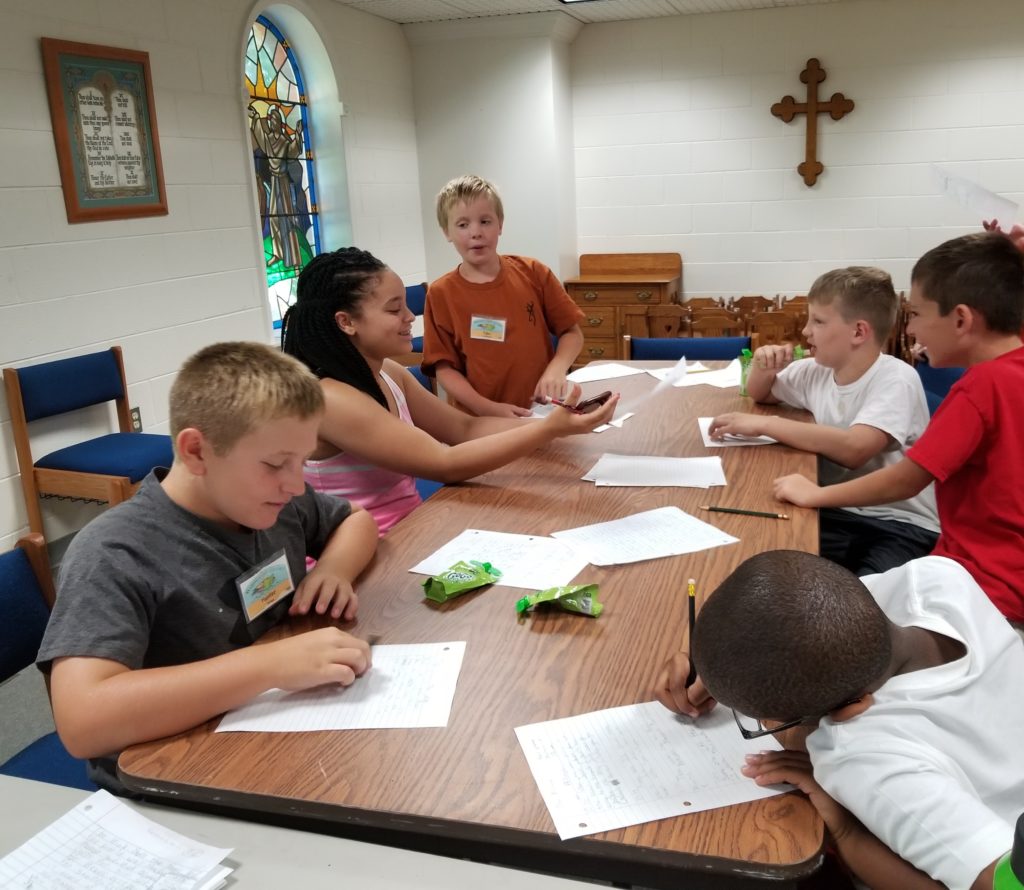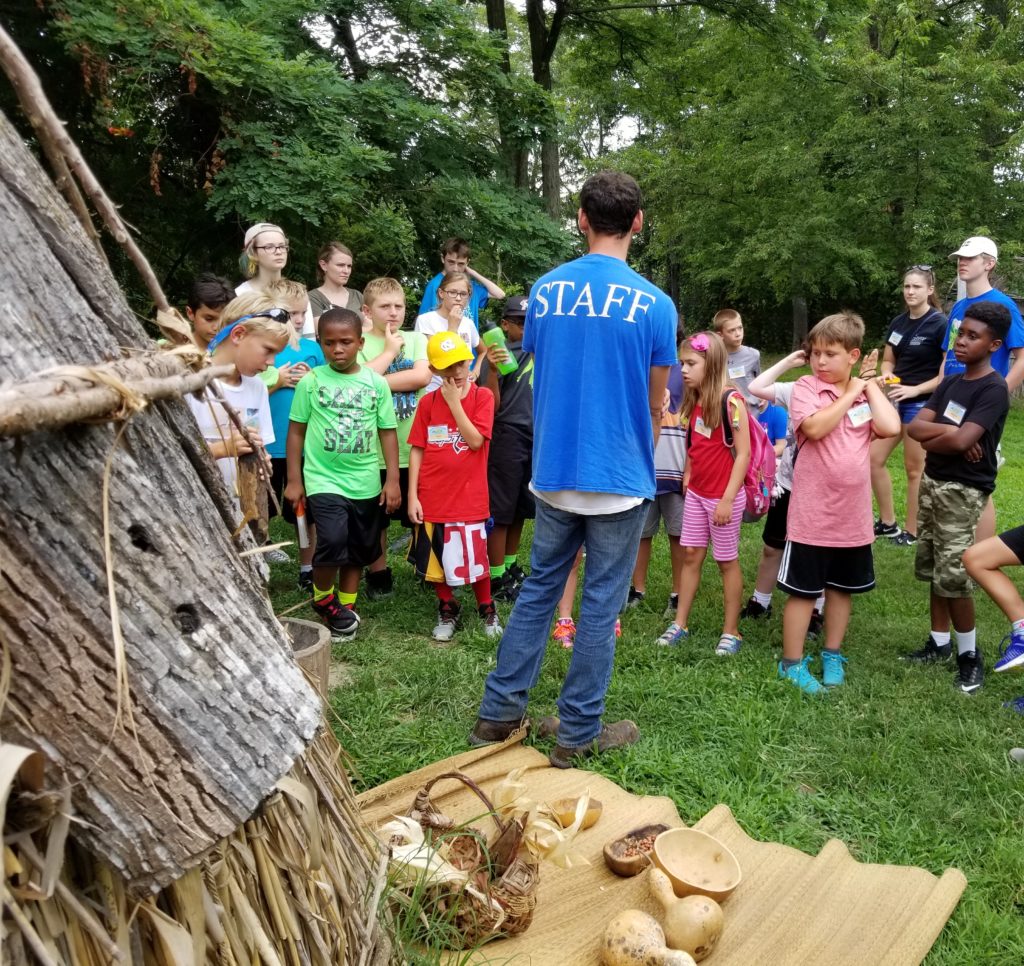Main Content

Our presence is a reminder to the church of the needs, hopes and concerns of the world beyond the church.
We are the church’s mobilizing force for service and justice.
Feature Story
“Reading Camp has the power to change lives.”
An interview with Deacon Michelle Doran, organizer, driving force and evangelizer for the Reading Camp programs in the Diocese of Maryland.
Michelle, how and when did you get started with the Reading Camps?
Reading Camp is the brainchild of the Diocese of Lexington. The first Reading Camp was held in 2002 in response to the growing awareness of the need for literacy support for children. Reading Camp came to the Diocese of Maryland through the efforts of the late Archdeacon Madeline Beard, who, in her role as the Jubilee Minister of the Diocese, attended a conference where she heard about Reading Camps.
We joined the Reading Camp Network in 2013, and held the first one in Calvert County. We’ve grown from there. This past summer there were 4 camps, and we anticipate that there will be six this coming summer (2018).
My passion for Reading Camp comes out of my understanding that our children are our most important resource and our future. We need well-educated people capable of making well-informed decisions for our country and our people. We need to give every child the opportunity to become all that they are capable of being. None of this will happen without solid reading skills. And then there’s the fact that reading is fun!

Why is this ministry important?
Children who are not fluent readers are at risk for failure. Reading Camp’s goals are to strengthen basic reading skills, to stem summer learning loss, to build children’s self-confidence with regard both to reading and their own self worth, and to develop a love of reading. Reading Camp also gives children, who otherwise don’t have the opportunity, to do the normal things kids do at camp—swimming, playing sports, arts and crafts, etc.
A secondary goal of Reading Camp is to feed hungry children. Not all of our children come from homes where hunger is an issue, but many do. Hungry children can’t learn. This is why we feed children both breakfast and lunch and provide them with two snacks each day.
What makes this a particularly meaningful activity for you as a deacon, as you live out Jesus’ mandate to serve others?
For me, the baptismal covenant is the guiding force of my life both as an individual and as a deacon. I have been an educator all of my adult life, and when I retired, I wanted to continue in the education field in some manner. Reading Camp is a blend of both of these. Too often we ignore the needs of children, especially poor children, which denies both their dignity and their humanity, and we are paying the price for doing so. Reading Camp offers one small opportunity to “serve the least of these.”

What do you hope for the future?
I want to see the program continue to expand throughout the Diocese. I would also like to see a stable source of funding to help existing camps and to help new camps to get started. We are totally reliant on grants and donations. There is no charge to campers and their families. Right now it costs roughly $5000 to run a camp for a week. And my biggest dream is that there will be a paid position on the diocesan staff whose job it is to oversee Reading Camp, raise funds, and spread the message of Reading Camp.
How can others (especially deacons) get involved?
They can begin by volunteering at one of the existing camps, or better yet, they can recruit and encourage laypersons in their congregations to volunteer, for a day or for a week. We need all kinds of talent, not just teachers. They can volunteer and build relationships with their local schools, other churches and service organizations to work on behalf of children.
Right now we are in special need of someone to manage the Reading Camp Maryland social media presence. So if there is someone out there in your congregation, let me know (michellesdoran@gmail.com).

Is there anything else you want people to know about Reading Camp
Reading Camp has the power to change lives. A child finds an author that tickles his soul or all of a sudden sees the relevance of reading in his life. Or better yet, discovers that he can succeed at reading and that reading is not something to be feared and avoided, but to be embraced.
